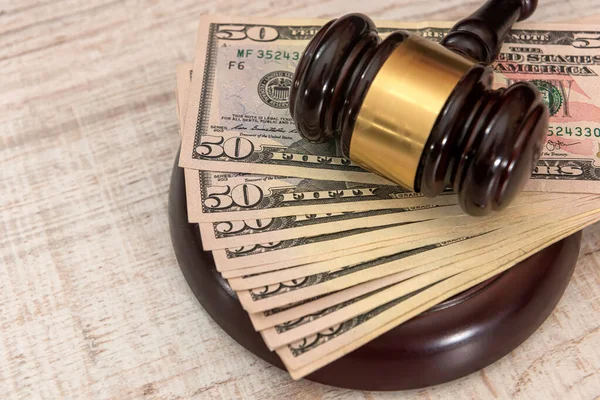

Decoding the auction block for classic car bidding is crucial for success in this thrilling market. Winning a coveted classic car requires more than just luck; it demands a calculated approach, blending astute research, meticulous valuation, and tactical bidding. Classic car auctions are often fierce competitions, and without the right strategies, you risk losing out on your dream vehicle or overpaying. This guide will provide in-depth insights into several key areas crucial to thriving in these exciting auction environments. We will cover the fundamentals, explore different bidding strategies, and examine the importance of thorough research in the process of acquiring classic cars. The structure of this article is as follows: First, we’ll delve into the practical importance and meaning of the auction block. Next, we will discuss various critical steps and considerations before venturing into bidding. Finally, we will present actionable techniques for successful bidding strategies. These proven strategies are designed to empower you to approach classic car auctions with confidence, enabling you to secure your desired vehicles at a price that aligns with their true value.
Understanding the Auction Block
Setting the Stage for Successful Bidding
Decoding the auction block isn’t just about understanding the numbers; it’s about absorbing the atmosphere, identifying patterns, and predicting the trajectory of the bidding. The auction block, in essence, acts as the dynamic stage where the interplay between buyer and seller unfolds. Observing the actions of other bidders is essential. What are the drivers that determine the price? Attention to detail in this dynamic environment can provide crucial insights into the motivations of various participants. Auctioneers often employ subtle cues to influence bidding patterns, and by paying close attention, you can gauge the competitive landscape and anticipate potential price surges. Understanding this can significantly improve your bidding strategy.
Pre-Auction Research
Before entering the auction arena, a thorough investigation of the vehicle is paramount. Look at the car’s history, past ownership, condition reports, and any potential maintenance or repair records. This pre-auction research is indispensable for accurately estimating the car’s worth. This step involves investigating the vehicle’s condition, its historical performance, its past ownership, its current market value, and its potential future value. Consider seeking professional appraisals from respected automotive experts, as this level of insight and research is essential for successful classic car bidding strategies.
Developing a Winning Bidding Strategy
Setting a Realistic Budget
It is vital to establish a firm budget before entering any classic car auction. This budget should be based on in-depth research of market values, the car’s condition, and potential market factors. It is always better to aim a little lower than your top price, allowing room for flexibility in the bidding process. Overspending is a common pitfall. A realistic budget will allow you to avoid unnecessary risks and ensure you’re not overpaying. A clear understanding of market values, the car’s condition, and the auction dynamics are crucial elements for a realistic budget.
Mastering the Art of Negotiation
Deciphering Bidding Signals
Auctioneers often use nonverbal cues or verbal prompts to subtly influence the pace and intensity of bidding. Observing these signals allows you to anticipate the direction of the bidding process. Are the bids escalating slowly or rapidly? Are there extended pauses or moments of silence? Pay close attention to both the verbal and nonverbal cues from the auctioneer. This crucial piece of knowledge allows you to refine your strategic approach and make informed decisions during high-pressure bidding situations. Understanding the bidding patterns and dynamics is key to winning. This includes the subtle changes in tempo, the tone of the auctioneer’s voice, and other verbal or nonverbal clues that offer crucial insights into the situation.
Evaluating Market Dynamics
The current classic car market often reflects overall economic conditions, societal trends, and technological advancements. Factors like inflation, economic recession, or a boom in a particular automotive segment can impact market values. Researching current market trends will help you prepare for fluctuations in market dynamics.
Handling the Pressure
Managing stress and maintaining a cool head during high-pressure bidding situations is essential. This often involves meticulous preparation and a well-defined bidding strategy. Understanding how the auction environment affects emotional responses and applying proven strategies to counter anxiety will be crucial to succeeding in tense situations.
Recognizing Value Drivers
Identifying Key Criteria
Several elements contribute to a classic car’s value. These include the car’s condition, rarity, historical significance, and any unique features. A meticulous assessment of the vehicle’s history, provenance, and condition can assist in formulating a strategic bid. Understanding these elements will allow you to evaluate the vehicle’s potential return on investment. The car’s condition plays a significant role in the overall value proposition.
Advanced Bidding Strategies
Bidding with Confidence
Knowing your budget, understanding the vehicle’s market value, and having a well-defined strategy will contribute to confident bidding. This can improve your overall experience by ensuring that your emotions are in check and allowing you to make the right strategic choices. Remaining aware of your strategy will increase your confidence level.
Post-Auction Considerations
Secure the Deal
Once the gavel falls, it’s crucial to immediately secure the vehicle by paying the agreed-upon price and completing all necessary paperwork. The speed and effectiveness of securing the transaction are important. Following up immediately and ensuring all necessary legal and financial aspects are resolved is key. This step ensures that the deal is finalized successfully, maximizing the potential value for your investment.
Frequently Asked Questions
How can I research the value of a classic car before bidding?
Extensive research is paramount before participating in a classic car auction. Start by consulting reputable online resources and auction houses to obtain detailed information on the specific model, its history, and similar models that have sold previously. Look for auction results from reliable platforms and authenticate the car’s condition and provenance with expert appraisals. Thorough historical research and understanding the factors influencing car value—like condition, rarity, and original features—are essential to formulating a sound bidding strategy. Checking for any documented recalls or maintenance records can further aid the assessment process.
What are some common pitfalls in classic car bidding?
One common pitfall in classic car bidding is neglecting thorough research. Impulsive bidding without a comprehensive understanding of the car’s value can lead to overpaying. Insufficient preparation, not having a pre-determined budget, or lacking a clear bidding strategy are some other common pitfalls. A lack of experience or understanding of the auction process can also cause difficulties. Understanding the bidding environment and staying calm throughout the auction can make a huge difference.
In conclusion, decoding the auction block for classic car bidding requires a strategic approach that combines research, valuation, and negotiation. Understanding the nuances of the auction process, recognizing the value drivers for classic cars, and practicing effective bidding strategies are critical for success. By following these guidelines and staying informed, you can potentially secure your dream classic car at a fair price. Ready to dive deeper into the world of classic car auctions? Click here to access our exclusive guide on maximizing your bids and minimizing risk!